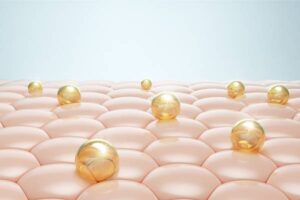
Oral GHK-Cu Capsules: Copper Peptides For Skin
Unlocking Skincare from Within The Power of Oral GHK-Cu In the pursuit of radiant, youthful skin, the beauty industry is
Human Chorionic Gonadotropin (HCG) has long been a critical element in fertility treatments and reproductive science. Often called the “pregnancy hormone,” HCG is a hormone produced by the placenta after implantation [1]. Its role in supporting the early stages of pregnancy is well-known, but its applications in improving female fertility are equally significant. In this comprehensive review, we will explore the mechanisms, roles, and clinical applications of HCG in fertility treatments.
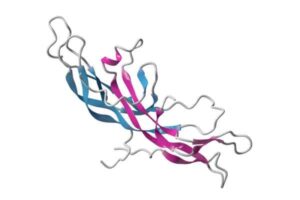 HCG plays a vital role in the female reproductive system. Upon fertilisation, the hormone signals the corpus luteum to continue producing progesterone, which is crucial for maintaining the uterine lining and supporting early pregnancy. This process ensures that the embryo can implant and grow in a stable environment. Additionally, HCG stimulates the ovaries to support follicular maturation and ovulation.
HCG plays a vital role in the female reproductive system. Upon fertilisation, the hormone signals the corpus luteum to continue producing progesterone, which is crucial for maintaining the uterine lining and supporting early pregnancy. This process ensures that the embryo can implant and grow in a stable environment. Additionally, HCG stimulates the ovaries to support follicular maturation and ovulation.
Interestingly, HCG mimics the action of luteinising hormone (LH), another hormone central to ovulation and reproduction. Due to this similarity, HCG is often used in fertility treatments to trigger ovulation and support the luteal phase of the menstrual cycle. Understanding these mechanisms helps Saudia Arabia researchers and clinicians develop more effective fertility treatments.
Visit the main HCG category page at Direct Peptides Saudia Arabia to shop all product variations and find out other applications this peptide can be used for.
 Ovulation induction is a common practice in infertility treatments, and HCG is a critical component. By administering HCG, clinicians can trigger the final maturation and release of eggs from the follicles. This process is essential for timed intercourse, intrauterine insemination (IUI), or in-vitro fertilisation (IVF).
Ovulation induction is a common practice in infertility treatments, and HCG is a critical component. By administering HCG, clinicians can trigger the final maturation and release of eggs from the follicles. This process is essential for timed intercourse, intrauterine insemination (IUI), or in-vitro fertilisation (IVF).
HCG’s role in ovulation induction is well-documented. According to the Journal of Human Reproductive Sciences (2020), HCG effectively mimics the natural LH surge, leading to successful ovulation. This practice improves the chances of fertilisation and subsequent pregnancy, making HCG a valuable tool in fertility clinics worldwide.
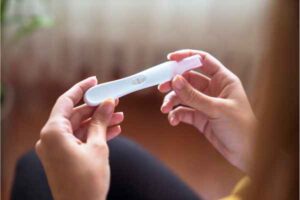 Beyond its role in ovulation induction, HCG is central to pregnancy testing and monitoring. Pregnancy tests detect the presence of HCG in urine or blood, confirming pregnancy within days of implantation. This early detection is crucial for timely prenatal care.
Beyond its role in ovulation induction, HCG is central to pregnancy testing and monitoring. Pregnancy tests detect the presence of HCG in urine or blood, confirming pregnancy within days of implantation. This early detection is crucial for timely prenatal care.
During pregnancy, HCG levels are monitored to assess the health and progression of the pregnancy. Abnormal HCG levels can indicate potential issues such as ectopic pregnancy or miscarriage. Saudia Arabia Clinicians rely on HCG measurements to make informed decisions about patient care, underscoring the hormone’s importance in reproductive medicine.
While Saudia Arabia HCG in fertility treatments remains a mainstay, alternative substances are also utilised to achieve similar outcomes. These alternatives offer different mechanisms of action and can be suitable for patients whose circumstances warrant a different approach. Notable alternatives include Gonadorelin, Kisspeptin, and Human Menopausal Gonadotropin (HMG).
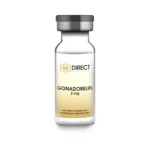 Gonadorelin, also known as Gonadotropin-Releasing Hormone (GnRH), is a synthetic form of a naturally occurring hormone that plays a pivotal role in regulating the reproductive system. Gonadorelin stimulates the pituitary gland to release luteinising hormone (LH) and follicle-stimulating hormone (FSH), which are crucial for ovulation induction and follicular development. By closely mimicking the body’s natural reproductive hormone signals, Gonadorelin available from Direct Peptides, provides a controlled method for managing ovulation, making it a viable alternative to HCG.
Gonadorelin, also known as Gonadotropin-Releasing Hormone (GnRH), is a synthetic form of a naturally occurring hormone that plays a pivotal role in regulating the reproductive system. Gonadorelin stimulates the pituitary gland to release luteinising hormone (LH) and follicle-stimulating hormone (FSH), which are crucial for ovulation induction and follicular development. By closely mimicking the body’s natural reproductive hormone signals, Gonadorelin available from Direct Peptides, provides a controlled method for managing ovulation, making it a viable alternative to HCG.
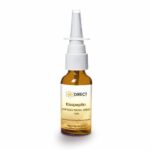 Kisspeptin, available from Direct Peptides, is a neuropeptide that has emerged as an important regulator of the reproductive hormone axis. It works by stimulating the release of GnRH, thereby promoting the secretion of LH and FSH. Clinical trials have shown that Kisspeptin can successfully induce ovulation in women, offering a physiological approach to fertility treatment. Its role in modulating reproductive hormones makes it a promising alternative, particularly for patients who may be resistant to traditional HCG treatments.
Kisspeptin, available from Direct Peptides, is a neuropeptide that has emerged as an important regulator of the reproductive hormone axis. It works by stimulating the release of GnRH, thereby promoting the secretion of LH and FSH. Clinical trials have shown that Kisspeptin can successfully induce ovulation in women, offering a physiological approach to fertility treatment. Its role in modulating reproductive hormones makes it a promising alternative, particularly for patients who may be resistant to traditional HCG treatments.
 Human Menopausal Gonadotropin (HMG) contains both LH and FSH, derived from the urine of postmenopausal women. HMG is widely used in assisted reproductive technologies, particularly for stimulating the ovaries to produce multiple follicles. Its dual action on LH and FSH makes it a powerful alternative to HCG for patients undergoing in-vitro fertilisation (IVF) treatments. By supporting follicular development and ovulation, HMG plays a critical role in enhancing fertility outcomes. HMG is available to buy from Direct Peptides Saudia Arabia.
Human Menopausal Gonadotropin (HMG) contains both LH and FSH, derived from the urine of postmenopausal women. HMG is widely used in assisted reproductive technologies, particularly for stimulating the ovaries to produce multiple follicles. Its dual action on LH and FSH makes it a powerful alternative to HCG for patients undergoing in-vitro fertilisation (IVF) treatments. By supporting follicular development and ovulation, HMG plays a critical role in enhancing fertility outcomes. HMG is available to buy from Direct Peptides Saudia Arabia.
While HCG is a potent and effective tool in fertility treatments, these alternatives—Gonadorelin, Kisspeptin, and HMG—provide valuable options for tailored and personalised patient care. Each alternative offers distinct mechanisms and benefits, broadening the possibilities for successful fertility treatments.
In conclusion, HCG in fertility treatments remains a cornerstone, offering significant benefits in ovulation induction, pregnancy testing, and ART procedures. Its mechanisms and applications have been well-studied, providing valuable tools for fertility specialists. Recent research continues to expand our understanding of HCG, opening new avenues for innovative treatments.
For researchers and clinicians, staying informed about the latest advancements in HCG research is crucial. The future of HCG in enhancing female fertility looks promising, with ongoing studies and clinical trials paving the way for improved outcomes.
[1] D Betz and K Fane (2023) Human Chorionic Gonadotropin – Stat Pearls Publishing https://www.ncbi.nlm.nih.gov/books/NBK532950/
[2] L A Cole (2010) Biological functions of hCG and hCG-related molecules – Reproductive Biology and Endocrinology, Volume 8, Article number: 102.
[3] J Choi and J Smitz (2014) Luteinizing hormone and human chorionic gonadotropin: Origins of difference – Molecular and Cellular Endocrinology, Volume 383, Issues 1–2, 5 March 2014, Pages 203-213.
[4] B Lunenfeld, W Bilger, S Longobardi, V Alam, et al (2019) The Development of Gonadotropins for Clinical Use in the Treatment of Infertility – Frontiers in Endocrinology (Lausanne), 2019, Volume 10, Page 429.
[5] T B Mesen and S L Young (2015) Progesterone and the Luteal Phase: A Requisite to Reproduction – Obstetrics and Gynecology Clinics of North America, Volume 42, Issue 1, March 2015, Pages 135-151.
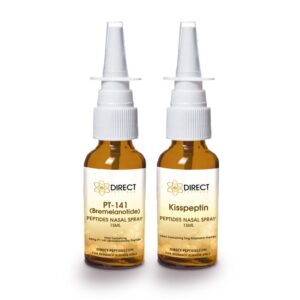
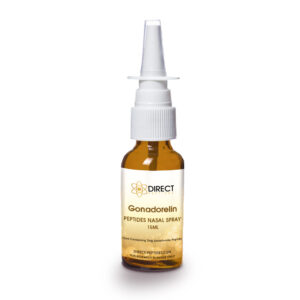
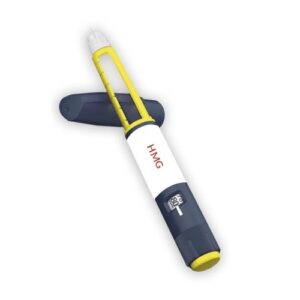
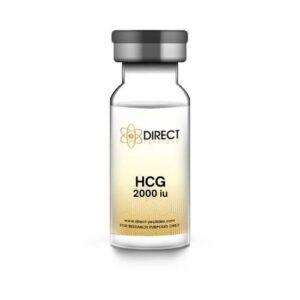
TWIN PACKS
ALL CONTENT AND PRODUCT INFORMATION AVAILABLE ON THIS WEBSITE IS FOR EDUCATIONAL PURPOSES ONLY.
DISCLAIMER: These products are intended solely as a research chemical only. This classification allows for their use only for research development and laboratory studies. The information available on our Saudia Arabia Direct Peptides website: https://saudia-arabia.direct-peptides.com is provided for educational purposes only. These products are not for human or animal use or consumption in any manner. Handling of these products should be limited to suitably qualified professionals. They are not to be classified as a drug, food, cosmetic, or medicinal product and must not be mislabelled or used as such.

Unlocking Skincare from Within The Power of Oral GHK-Cu In the pursuit of radiant, youthful skin, the beauty industry is

Energise Your Research with the Best Peptides for Boosting Vitality Researchers have long been interested in the potential of peptides

What Are The Top Anti-Ageing Peptides Available on the Market? Peptides are short chains of amino acids that act as

Unlocking the Secrets of a Longer Life with Peptides In anti-aging research, peptides are becoming important allies in the pursuit
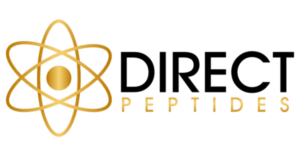
401 N. Mills Ave, Ste B, Orlando, FL 32803, United States
